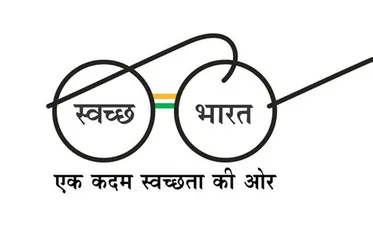
Land Resources And Management



Land Resources And Management


Land Management
Learn about land management land and how it is utilised for manufacturing, preservation, or recreational purposes and related topics. Effective land management is the need of the hour.
Land Management
Sustainable land management is critical for reducing land degradation, restoring degraded regions, and guaranteeing the best use of natural resources for current and upcoming populations. Land use management aids in the development of cohesive policies and activities that assist in the effective and culturally acceptable use of land resources while improving benefits and reducing adverse environmental consequences of agriculture.
Land management refers to land’s correct usage and maintenance as per its features and requirements. Land management necessitates decision-making and is influenced by the function it fulfils, such as agricultural production, habitation, recreational, mineral extraction, and the character and features of the land. Land management has several facets. Although it is applied primarily to farming and agricultural cultivation, it encompasses other activities such as habitation, urban and industrial expansion, transportation and roads, recreation activities, mines, and environmental conservation.
Need For Land Management
Modern farming necessitates several fertilisers, herbicides, and chemicals to fulfil high output
targets. It
is
reliant on highly mechanised field activities. This causes many environmental issues, the most evident
are
soil
and water contamination and rising soil erosion.
Non-agricultural uses, on the other hand, are becoming increasingly significant in industrialised
nations,
occupying a growing amount of land. These applications are concentrated in urban and industrial growth,
highways
and transportation, mines, forestry, and conservation areas. Care and land restoration have become
critical
issues with increasing environmental preservation concerns.
These prioritise erosion and pollution prevention, the implementation of environmentally friendly
farming
methods and manufacturing activities, and, eventually, the prohibition of the most harmful items and
repair
and
rehabilitation of contaminated places. The ultimate objective should be to have sustainable land use
with
healthy soils.
Objectives Of Land Management
Ideas of wisdom are inextricably tied with good land management. This necessitates the application of
ancient
hereditary knowledge and the assimilation of new technical expertise. Land management, and particularly
agricultural land management, has three primary goals:
=>
A financial or production goal that focuses on optimisation in long-term output maximisation.
=>
A conservation goal of preserving the accessible characteristics, capabilities, and results.
=>
A reclamation component to remove limitations, avert deterioration, and rehabilitate or recover
the
land’s
qualities and use potential.
Excellent management necessitates the continuity of good practices and the ability to adapt to changing
situations.
Sustainable Land Management
Land offers an environment for farming systems and is also necessary for enhanced environmental
management
such
as supplier processes for greenhouse gases, nutrient cycles, contaminant alteration and filtration, and
water
transmission and cleansing as components of the hydrological processes. Sustainable land management aims
to
balance the complementary objective of providing ecological, financial, and social possibilities for
current
and
subsequent populations while conserving and improving the quality of the land resource (soil, water, and
air).
Sustainable land management involves technology, strategies, and actions that strive to integrate
socioeconomic
considerations with environmental impacts to:
=>
Maintain and improve output
=>
Minimise production risk and increase soil capacity to protect from environmental pollutants
=>
Safeguard natural resource potential and prevent soil and water quality deterioration
=>
Be financially feasible
=>
Be socially acceptable while ensuring access to advantages of better land management
Principles Of Sustainable Land Management
We can only accomplish sustainability via the combined efforts of those directly responsible for resource management. This necessitates a policy framework that allows farmers and other local decision-makers to profit from excellent land-use decisions while holding them accountable for improper land uses. It is vital to integrate economic and environmental concerns holistically to accomplish the goals of sustainable land management. This necessitates that environmental issues be prioritised alongside economic success when assessing the effects of development initiatives and that credible metrics of environmental performance be created. There is now an immediate requirement to address the global problem of producing more food to support the world’s fast-growing population while protecting the land’s biological production capacity, strength, and ecological management systems. If correctly developed and performed, sustainable land management will guarantee that agriculture becomes a component of the environmental solution instead of an issue.
Land Management Examples
Land degradation is a broad and expanding issue that can just be addressed by joint and integrated methods and focused initiatives and actions. As a consequence of land degradation, agricultural productivity in Sub-Saharan Africa is declining each year. Various efforts include a collective mechanism for tackling bottlenecks, enhancing the efficiency of economic and non-economic resources, and consequently, mainstreaming and funding successful nationally-led Service Level Management policies. The usage of barren land to create parks for children is an intelligent alternative to reduce land wastage. Creating agricultural sites near water resources increases crop production and reduces water transportation. This would be an effective land management method. The conservation of forests and forest land protection is another example of land management. It preserves nature and ensures an ecological balance of the earth.
Conclusion
Land management is controlling the usage and improvement of land resources for urban and agricultural settings. It is predominantly handled in urban areas. Sustainable farming, reforestation, water conservation, and environmentalist projects are examples of how land resources are utilised. Land management may impact terrestrial ecosystems in good and bad ways. High amounts of use or improper land use may deteriorate and impair production and upset the natural balance of the land. Thus, land management is essential to maintain the natural ecosystem and improve the land.

Copyright © 2023 LandInfo. All rights reserved.